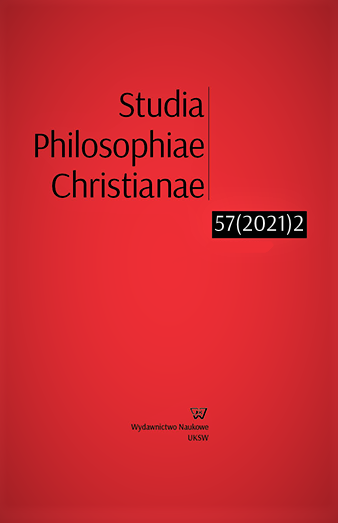Ciało ludzkie a organizm zwierzęcia: ujęcie Hansa-Eduarda Hengstenberga
The Human Body and the Animal Organism: Hans-Eduard Hengstenberg’s Account
Author(s): Józef KożuchowskiSubject(s): Metaphysics, Contemporary Philosophy, Phenomenology
Published by: Wydawnictwo Naukowe Uniwersytetu Kardynała Stefana Wyszyńskiego w Warszawie
Keywords: body; organism; animal; objectivity; spirit; phenomenology; metaphysics;
Summary/Abstract: This article considers an important aspects of the account of corporeality originally outlined by Hans-Eduard Hengstenberg, namely its relation to the animal organism. Contrary to the currently dominant naturalistic tendency, the German thinker shows the human body as not only quantitatively but also qualitatively different from the animal organism. To this end, Hengstenberg employs the principle of objectivity, which co-determines the human body and its organs and makes them essentially different from their animal counterparts. Man has a body whereas the animal is just an organism. Due to man’s specific ability to perform acts of a factual nature, the human spirit enables the body to perform two functions: biological (common to the animal world) and of an inorganic type. Human flesh should be considered in the physical sense and as an expression of the spirit. Hengstenberg developed his account on this issue from both a phenomenological and a metaphysical standpoint.
Journal: Studia Philosophiae Christianae
- Issue Year: 57/2021
- Issue No: 2
- Page Range: 145-167
- Page Count: 23
- Language: Polish

